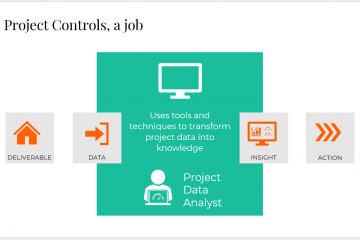Hoping for successful projects is a bit foreseeable? But let’s explore a bit. How will we get there?
Peaceful and successful projects?
First of all, what would be needed for a project to be peaceful and successful?
- A project concluded in accordance with the specifications and quality requirements.
- No budget overruns.
- No delay or disruption.
- No unforeseen events.
- No scope creep / uncontrolled changes.
- No disputes with the counterparts.
- Happy stakeholders and a socially and environmentally responsible outcome.
Apart from the first and the last point, there are a lot of “no’s”. Things to avoid, to flee from, to fight against? If the project was really perfect, would it need zero Contract Management and Project Controls?
Back to reality
We are not living in La La Land.
Nobody has ever seen a perfect project: everyone always on time, the perfect schedule, the perfect specs, excellent communication between the parties, … with no changes needed during project execution, no unforeseen events, no delayed approvals by the Employer, no mis-procurement or design mistakes by the Contractor, …
The perfect, peaceful and successful project may not exist! ?
Maybe we can look at it differently? Unforeseen events and delays, disruptions and changes by the project Parties will happen. In the near-perfect project, we would be able to handle these pro-actively, transparently and fairly.
And that’s where it often goes wrong, on these last three points. The past year has been again full of misunderstandings between Employers and Contractors. Not taking sides here, I am often on either side of the fence and also involved in dispute resolution.
Successful projects
Could the near-perfect project be one with the right size of Contract Management and Project Controls?
What would that “right size” be?
Right-sized Contract Management, both from Employer and Contractor point of view could be:
- Timely notification of events likely to delay or disrupt the works so that adequate mitigation can take place (cfr. advance warnings in FIDIC or NEC contracts).
- Rapid acknowledgement of entitlements.
- Collecting contemporaneous records that are checked and found accurate by both contracting Parties.
- Not waisting time on yes-no discussions.
- And, last but not least, interest based negotiations.
As mentioned above, the pro-active and transparent stuff, applied in a fair way.
What to stop doing?
Again, during the past year (and all the years before that), I’ve seen the following situations both from client and (sub-)contractor side:
- Issuing notices of counterpart delays (for minor delays), to shield oneself from responsibility for its own (major) delays.
- Claiming for unforeseen events (like the covid-19 impact) to recover from tender underestimation or operational inefficiencies.
- And conversely, refusing legitimate claims just to control or reduce one’s own budget.
- Refusing any extension of time: “It’s an EPC/lump sum contract, everything is included, you are assuming all the risks …”.
- Refusing to look at the substance of/entitlement to a claim for alleged shortcomings on form or substantiation.
- Etc. etc. etc.
Right-sized Contract Management and Project Controls
Right-sized Contract Management and Project Controls for successful projects could be summarized as follows:
“I know – and you know – that we have a good visibility on the project status (Project Controls) and thoroughly understand each parties’ contractual entitlements and obligations (Contract Management). We can therefore apply the (hopefully) balanced contract in a fair way so that the Employer gets good value for its money and the Contractor fair compensation for its (hopefully) good work.”
- “I know and you know”: transparency and sharing of information! An approved base-line programme, EOT’s during the course of the project and good schedule updates based on actual progress.
- “Good visibility”: data correctly and contemporaneously captured and transformed into project insights.
- “Thoroughly understand contracts”: involving contract specialists that do not only defend one party’s position but can consider the overall picture and empathize with the other party.
- “A balanced contract”: mostly achieved by starting from an international standard (like FIDIC or NEC).
- “Value for money” + “money for work”: the correct pricing at the outset can still be achieved by competitive bidding. The situation is much more complicated for change orders and delay-and-disruption claims. That’s where fairness and reasonableness come into play.
Conclusion
Perfect projects do not exist. But successful projects can be achieved by proper Project Controls and Contract Management. These two sub-disciplines of Project Management work hand-in-hand, firstly, to better understand the project situation and, then, to take the necessary measures to mitigate the consequences of disruptive events. And this with a focus on the project performance rather than on defending individual positions of the contracting Parties.
When looking back at your projects during the past year, were Project Controls and Contract Management at the required level to reach near-perfect projects? How can you improve your Project Controls and Contract Management in the future?



0 Comments